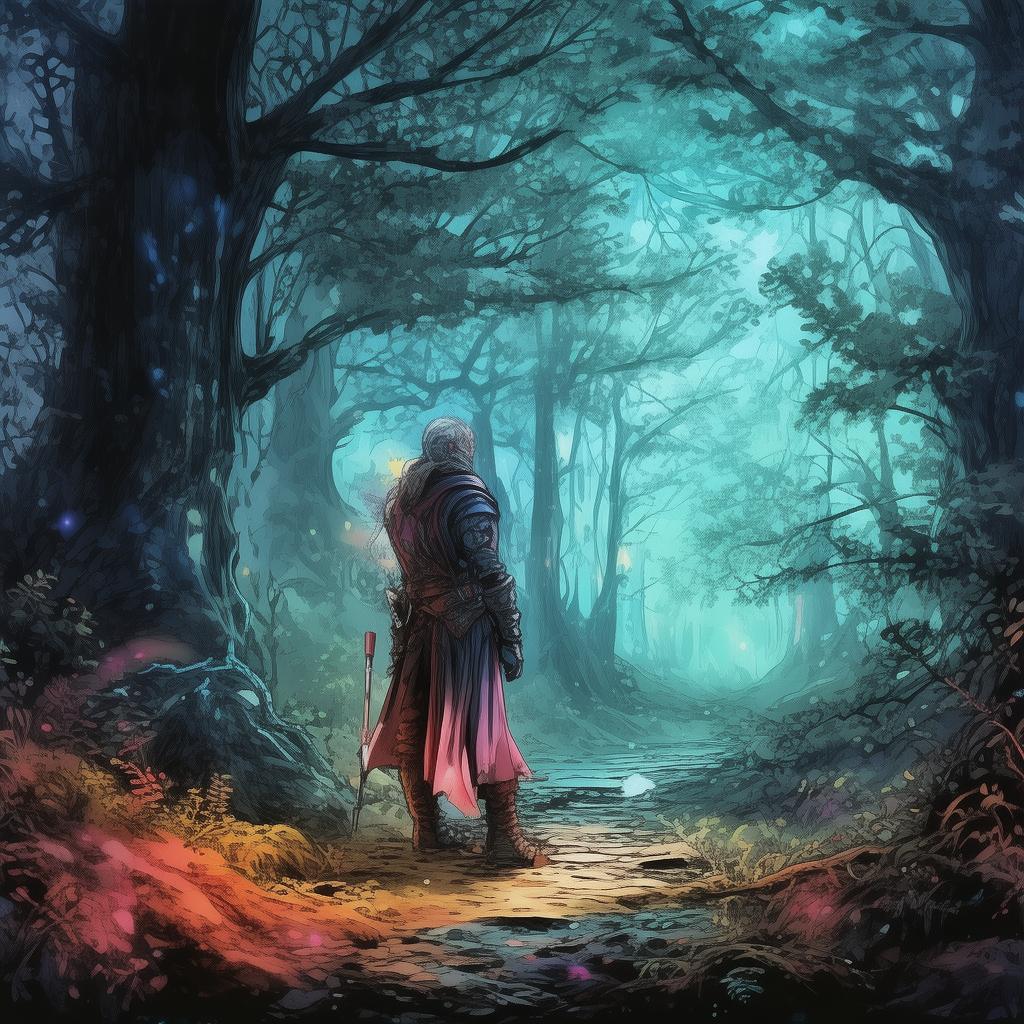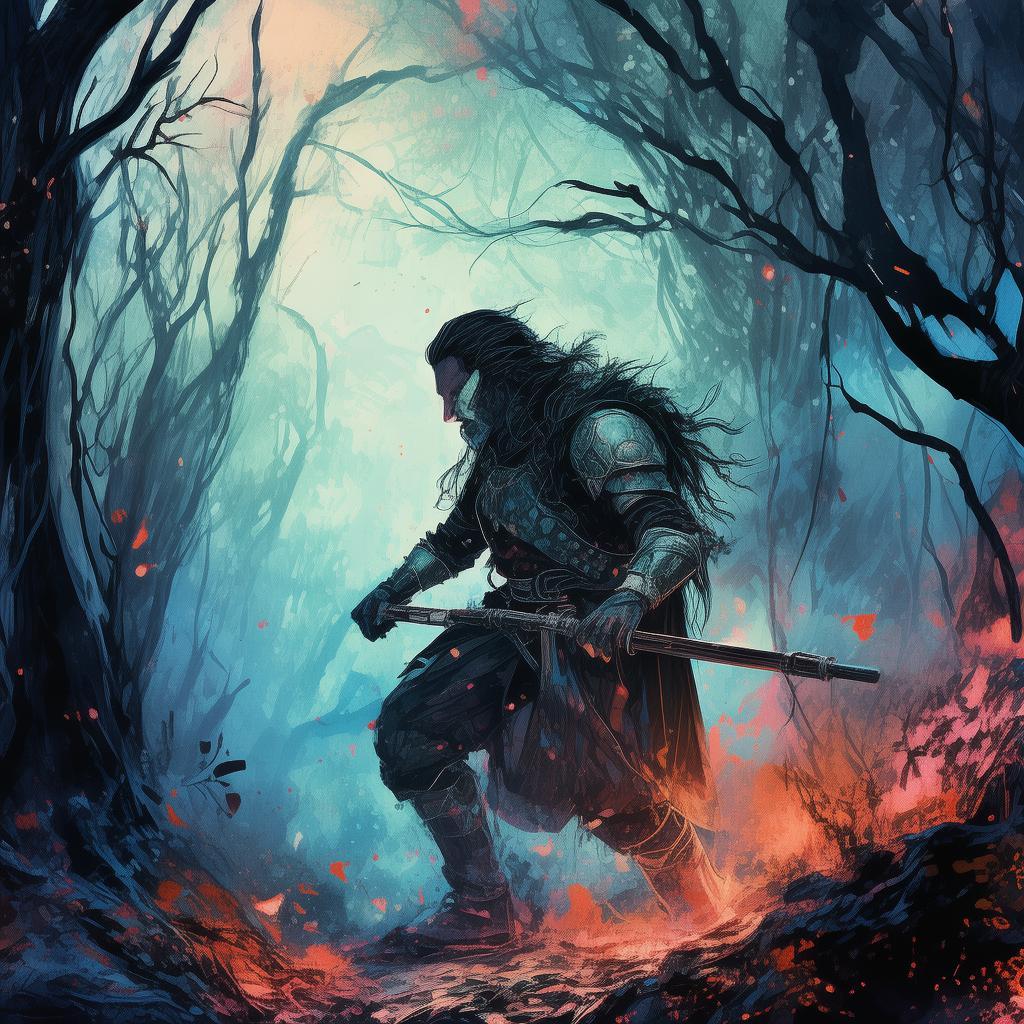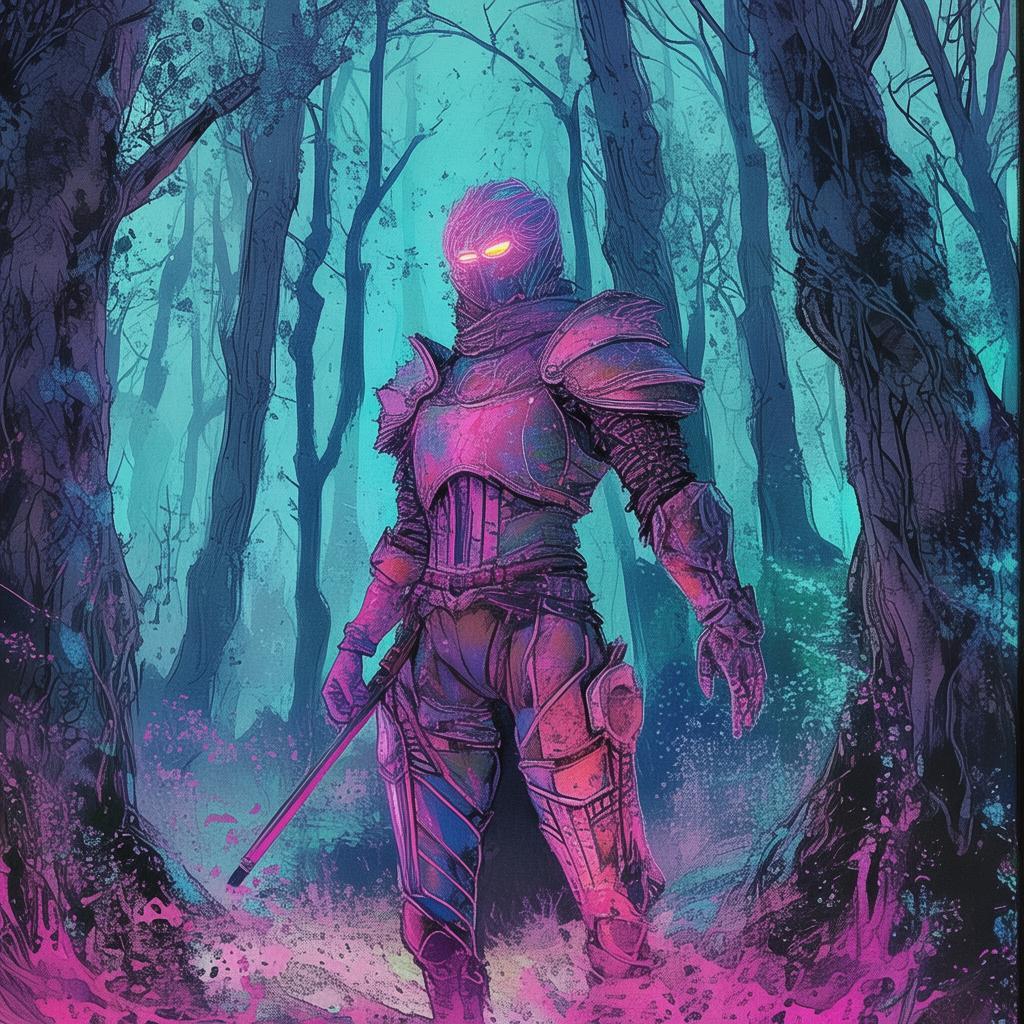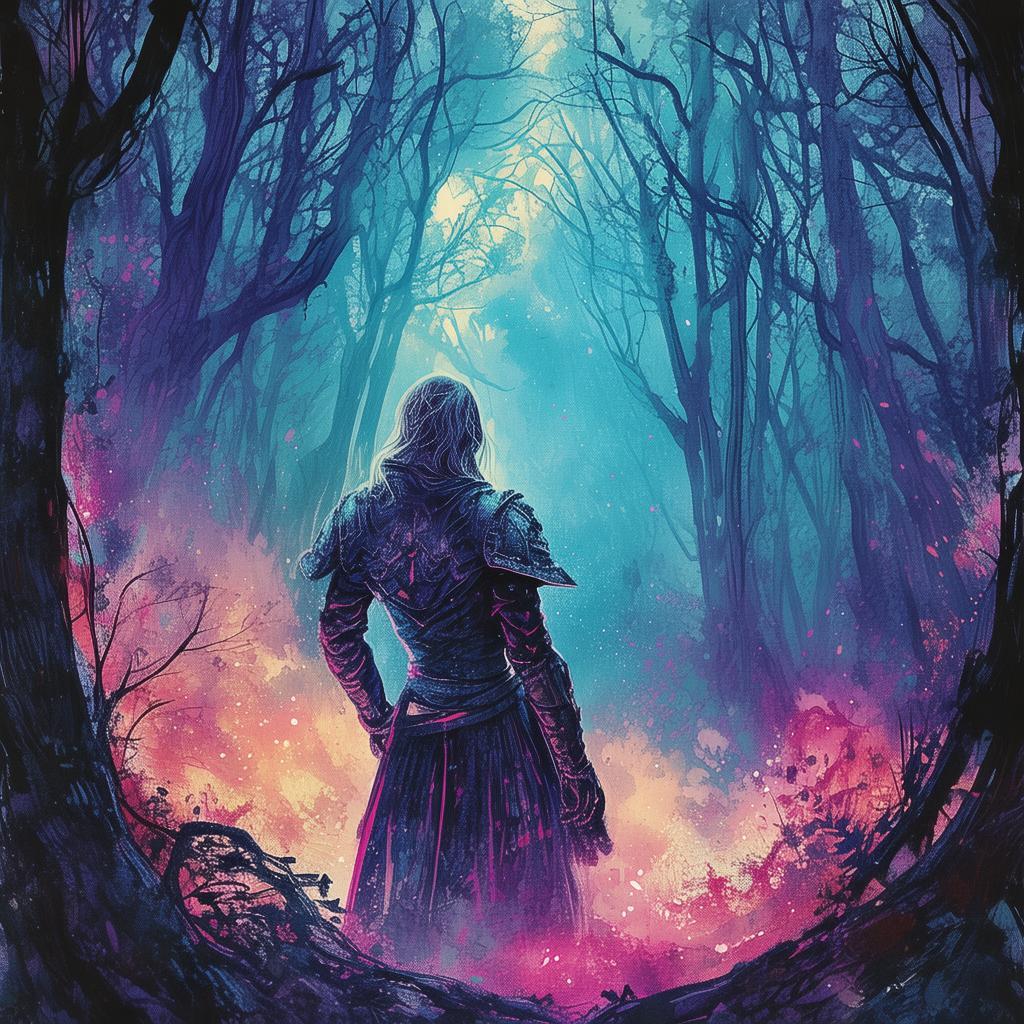The Celestial Chessboard: Guiguzi's Game of Life and Death
In the misty realm of ancient China, where the heavens whispered secrets to the earthbound, there lived a monk named Feng. His name, though known to few, held the weight of countless lives. Feng had been chosen by fate to play a game of life and death, a game that would not only determine his own destiny but that of the entire world.
The legend spoke of the Celestial Chessboard, a board of celestial proportions that could alter the very fabric of existence. This board was the domain of Guiguzi, the ancient master of the game, who had once walked the earth and brought balance to the cosmos through the delicate balance of life and death. It was said that those who mastered the game could bend fate to their will, a power that was both a blessing and a curse.
Feng had been chosen as the successor to Guiguzi's legacy. His journey began in the tranquil halls of the ancient temple where he had lived in solitude, his mind sharpened by endless meditation and study of ancient texts. But when the night sky darkened and the stars waned, a visitor arrived at the temple's gates.
It was an old man, his eyes lined with the wisdom of ages. He spoke in riddles and prophecies, his words painting a picture of a world on the brink of chaos. He spoke of a dark force, a malevolent entity that sought to claim dominion over the heavens and the earth. The old man's voice was filled with urgency as he revealed the only way to defeat this dark force: to play Guiguzi's Game of Life and Death.
Feng, though untrained in the art of chess, felt a strange connection to the game. It was as if the very essence of his being had been designed to play this celestial match. With a heart heavy with destiny, he accepted the old man's challenge, knowing full well that the game was not just a test of skill but a confrontation with his own mortality.
The old man led Feng to the Celestial Chessboard, a board set upon a pedestal that rose high above the clouds, where the winds howled and the thunder roared. It was a board unlike any other, with pieces of living stone and moving stars, each piece representing a different force of nature or an aspect of life itself.
As Feng took his place before the board, the old man vanished as quickly as he had come, leaving Feng to confront the dark force that lurked within the depths of the celestial realm. The first move of the game was a simple one, yet it carried the weight of a thousand worlds.
Feng's opponent, a shadowy figure that seemed to slither through the very fabric of reality, moved with an uncanny precision. Each move of the dark force was a challenge to Feng's mind and spirit, a battle to determine the fate of the world.
Days turned to nights, and the game raged on. Feng's own life was a tapestry woven from the threads of the game, with each move he made affecting his own reality. He felt the weight of the earth beneath his feet shift and shake as he played, the mountains and rivers bending to the will of his moves.
As the game progressed, Feng discovered that his opponent was not just a force of darkness but a reflection of his own innermost fears and desires. The more he played, the more he saw the darkness within himself, and he knew that to win, he must confront and overcome these shadows.
The climax of the game was a battle of wits and wills, with Feng and the dark force trading blows across the board. Feng's pieces moved with the grace of the wind, while the dark force's moves were as relentless as the tide. The game grew more intense, more dangerous, until at last, a critical moment arrived.

In a move that seemed impossible, Feng's piece, a simple pawn, captured the dark force's king. The board was still, and the entire realm seemed to hold its breath. The dark force, now vulnerable, was forced to reveal its true nature, a twisted reflection of Feng's own soul.
With the dark force defeated, Feng realized that the game was not just about winning or losing, but about finding balance within himself. He had to embrace the light and the dark, the good and the evil, to truly become a master of life and death.
In the end, Feng returned to the temple, the Celestial Chessboard once again at rest upon its pedestal. The old man appeared, his eyes twinkling with approval. Feng had not only played the game but had also transcended it, understanding the true nature of life and death.
The legend of the Celestial Chessboard and Guiguzi's Game of Life and Death spread far and wide, inspiring countless souls to seek balance within themselves. Feng, the young monk, became a guardian of the cosmos, his life forever linked to the ancient game he had played.
And so, the story of Feng, the Celestial Chessboard, and Guiguzi's Game of Life and Death became a part of the tapestry of time, a tale that would be told for generations, a reminder that the game of life is a journey of self-discovery and the ultimate challenge of the human spirit.
✨ Original Statement ✨
All articles published on this website (including but not limited to text, images, videos, and other content) are original or authorized for reposting and are protected by relevant laws. Without the explicit written permission of this website, no individual or organization may copy, modify, repost, or use the content for commercial purposes.
If you need to quote or cooperate, please contact this site for authorization. We reserve the right to pursue legal responsibility for any unauthorized use.
Hereby declared.









